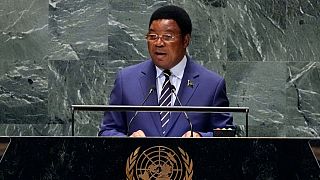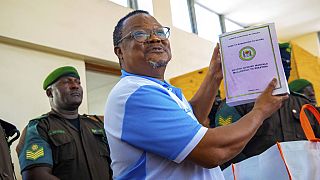Tanzania
Some are Elated While Others are Defiant
Tanzanian President John Pombe Magufuli was sworn in on Thursday in Dodoma the Tanzanian capital for a second five-year term after a landslide election victory dismissed by the political opposition as a sham amid their calls for a fresh election, as well as the disbandment of the electoral commission over the Oct. 28 vote which they claim was riddled with irregularities: Nevertheless, others still find joy in this moment and are celebrating.
Amina Thabit, a Dodoma resident, is ecstatic, "Am so excited today! We ask him to continue helping us improve our infrastructure, the availability of clean water for all, free education for our children coming from low-income families.”
The newly re-elected president addressed his supporters, "What is important now is that people start focusing on building the economy of our country. I want to assure you, my fellow Tanzanians, both the oaths I and my vice president took to respect the Constitution of our country: we shall make sure we respect and protect it no matter the cost."
Hope Amid Mixed Feelings
Omary Masito, a Tanzanian citizen, is hopeful, "We expect him to fulfil all those promises he gave. We trust him. I think he did well in his first term, he managed to fulfil most of his promises, few projects are pending. "
Police and army security was tight ahead of the swearing-in light of the still tense and volatile political climate.
Meanwhile, leaders of Tanzania's two main opposition parties, ACT Wazalendo and CHADEMA — who refuse to recognise Magufuli's win, have been charged with organising an unlawful assembly.












Go to video
Togo suspends French state-owned broadcasters RFI and France 24
Go to video
Protesters gather in Ivory Coast, demand Thiam's return on electoral list
02:13
Cameroon: Police, opposition supporters clash as election looms
01:25
Burundi awaits results of local and parliamentary elections
01:00
Ivory Coast: opposition candidates barred from electoral lists
Go to video
Ugandan lawmakers bring back military courts' ability to try civilians